"Saigon Commandos" is a film associated with the name of director Long Van. This classic work is considered one of the shining successes of Vietnamese revolutionary cinema.
Director Long Van passed away on the morning of December 24 in Hanoi . His career was marked by many classic films, the most notable of which is Saigon Special Forces.

Director Long Van passed away at the age of 87 (Photo: Document).
This is the first and only film in Vietnamese cinema to recreate the outstanding events of the Saigon Special Forces during the Vietnam War. Initially, director Long Van named the work Thien Than Rai Chien, but the late General Secretary Nguyen Van Linh - then Secretary of the Ho Chi Minh City Party Committee - found out and suggested changing the name to Biet Dong Sai Gon.
According to the late General Secretary Nguyen Van Linh, angels may not have achieved glorious feats like the special forces soldiers, and naming it Saigon Special Forces could realistically depict the reality that took place. Seeing that the idea was so reasonable, right after finishing episode 1, director Long Van changed the name of his work.
The film consists of 4 episodes: Rendezvous, Quiet, Storm and Give Me Back My Name, written by Le Phuong and Nguyen Thanh, and was filmed from 1982 and lasted about 4 years.

"Saigon Commandos" written by Le Phuong and Nguyen Thanh and directed by Long Van is a classic work of Vietnamese revolutionary cinema (Photo: Document).
Saigon Commandos depicts battle scenes with guns, mines, smoke and casualties, but mainly it is still the tense battle of wits between soldiers operating secretly in enemy territory.
That is Tu Chung - Commander of Saigon Special Forces - and his teammate Ngoc Mai must impersonate a wealthy capitalist couple, facing the enemy every day. They not only have to protect their own lives and communicate with their teammates, but also have to face extremely difficult situations.
Meanwhile, another female commando - Huyen Trang - had to disguise herself as a nun to hide from the enemy.
Besides, there were other brave and intelligent comrades such as Nam Hoa, Sau Tam, the mother in the rear, the newspaper boy who worked as a liaison... Each person had a different position and role, together creating the strength of the army and people.
Although only 4 episodes long, the work has many scenes that leave a deep impression. That is the torture scene of nun Huyen Trang (Meritorious Artist Thanh Loan), created by the film crew from the stories of revolutionary soldiers imprisoned in Con Dao prison.
The scene where Sau Tam (Thuong Tin) jumps off the bridge, with the enemy shooting after him, was confirmed by director Long Van to be a very dangerous scene because the river was lined with explosives, and every time he jumped down, someone pulled the cord to make the explosives shoot water up to represent enemy bullets.
Director Long Van also had to "break his tongue" to get his only daughter, child actress Van Dung, to play the role of a newspaper girl. The scene where the enemy tortured the girl by putting her in a barrel of poisonous snakes left many people haunted.
Sharing about this impressive scene, director Long Van once said that when filming the scene where Van Dung was tortured by the enemy by being put in a barrel of poisonous snakes, the girl only asked him to make the snake not stick out its tongue, while he needed to film the snake sticking out its tongue to create fear.
According to director Long Van, he rented about 20 snakes from a snake restaurant, and even hired a store employee to play the role of a torturer to control the snakes safely.
He hid the fact that these snakes had all their teeth pulled out and their venom removed, and their tails were tied tightly so that Van Dung would be terrified and cry out in order to get the most realistic footage.

Child actress Van Dung plays the role of a newspaper girl in the scene where she is tortured by the enemy, leaving viewers heartbroken and haunted (Photo: Screenshot from the movie).
As a film set in the war, Saigon Special Forces still does not lack poetry, conveyed gently and skillfully through the love between the army and the people, the camaraderie, and the romantic love of the special forces soldiers.
Interspersed between the fierce confrontations are emotional but tearful love stories of the couples: Tu Chung - Huyen Trang, Ngoc Mai - Tu Chung, Sau Tam - Ngoc Lan...
These points made the film more accessible than other films about war at that time.
The greatest success of the film Saigon Special Forces is not only the glorious feats of arms of the soldiers of the Vietnam People's Army, but also captures the "bridge of people's hearts" from wartime to peacetime.
Special forces soldiers not only fight for the common mission of the country but are also willing to sacrifice personal feelings for the fate of the country and the nation.
As a famous and talented director with many successful films, director Long Van still emphasized during his lifetime that Saigon Special Forces was always one of the most special "brainchildren" in his artistic career.
Sharing with Dan Tri reporter, screenwriter Trinh Thanh Nha said that the script for the film Saigon Special Forces was written intermittently. After showing the first two episodes and seeing that the film was very popular, the Cinema Department ordered to continue with episode 3, then episode 4. However, the entire script is still very tight and seamless.
This was possible thanks to the fact that screenwriter Le Phuong and director Long Van had carefully reviewed each situation and each scene before to come up with the optimal solution.
"I still remember, the two of you told the story of how to make actor Thuong Tin leave the film at the end of episode 2 because at that time Thuong Tin's character was making a strong impression. To make this character disappear from the story, a convincing situation was needed, so the two of you agreed to let Thuong Tin's character be exposed, then sacrifice himself at Binh Loi bridge.
To create this situation, the two men flipped through the plot, re-inserted the filmed segments, and led the story to that sacrifice so reasonably that many viewers cried because they felt sorry for the character," said Ms. Trinh Thanh Nha.
The female screenwriter also said that such a scenario is quite rare because it can lead to patchwork and forced continuity. However, the talent of the filmmakers has made the audience not notice any patchwork or forced continuity.

Scene from the movie "Saigon Commandos" (Photo: Document).
Talking about how the movie Saigon Special Forces became a box office phenomenon, setting a record for viewership at that time, screenwriter Trinh Thanh Nha shared that she witnessed audiences lining up to buy tickets to see the movie at theaters from the South to the North.
In some places, audiences even jostled to buy tickets until the walls collapsed, like at Co Nhue theater (Hanoi), creating an unprecedented scene in the history of Vietnamese revolutionary cinema.
According to her, in terms of film quality, at that time and forever after, the meticulousness in staging, acting... is difficult for any film to achieve.
"The big battle scenes at the US Embassy, or the barricades in front of the Dong A paint factory are very real. The same goes for the US raid on Cu Chi. The character portraits were carefully prepared, the actors were precisely chosen, each with their own fate and personality that cannot be mixed up.
The precise choice of actors for the roles of Tu Chung, Ngoc Mai, or nun Huyen Trang all helped the cast in the film leave an impression on the audience. Later, just seeing them, the public would happily call out the names of the characters in the film," said Ms. Trinh Thanh Nha.
Director Long Van was born in 1936 in Hanoi, then he and his family followed the resistance to Thai Nguyen . At the age of 14, director Long Van was sent to Nanning, China to study. In 1955, he graduated from the teacher training school and worked as a teacher until later switching to cinema.
He belongs to the generation of directors who matured before 1975. After graduating, he spent 15 years working as an assistant director for senior directors such as Pham Ky Nam, Huy Thanh, Bach Diep, Nong Ich Dat...
His first film as a director was The Call Forward in 1979, written by writer Phu Thang, which won an award at the Moscow International Film Festival, followed by the films The Meeting Place of Love and For All Tomorrow.
However, it was not until Saigon Special Forces - the first color film of Vietnamese cinema, released in 1985, that the name Long Van became known to everyone.
Hoang Ha (according to dantri.vn)
Source












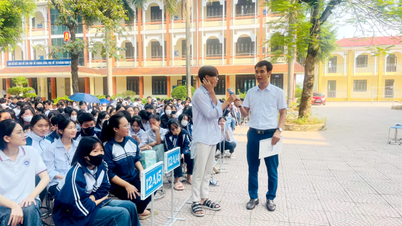
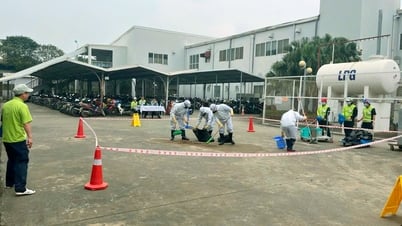










![[Maritime News] Wan Hai Lines invests $150 million to buy 48,000 containers](https://vphoto.vietnam.vn/thumb/402x226/vietnam/resource/IMAGE/2025/6/20/c945a62aff624b4bb5c25e67e9bcc1cb)
![[Photo] The 9th Congress of the Party Committee of the Office of the President, term 2025-2030](https://vphoto.vietnam.vn/thumb/1200x675/vietnam/resource/IMAGE/2025/6/20/78e7f27e8c4b4edc8859f09572409ad3)












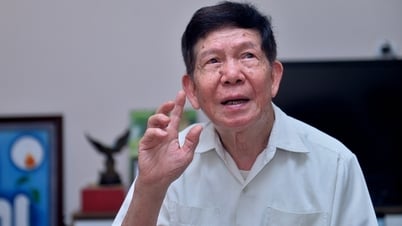













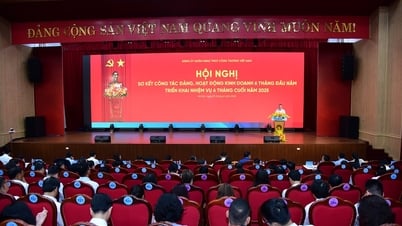



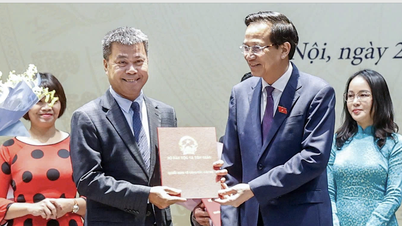
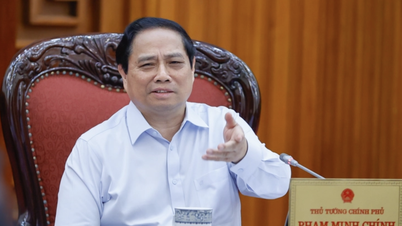


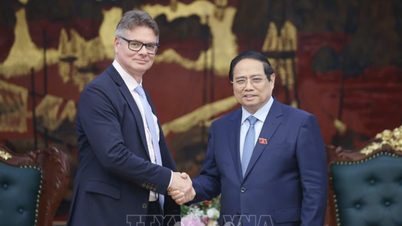




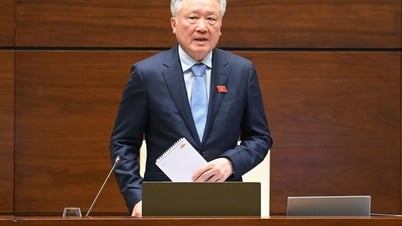




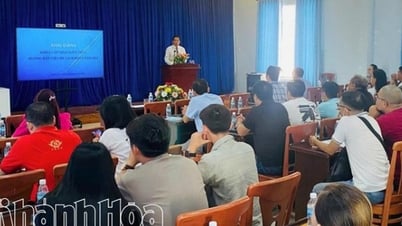








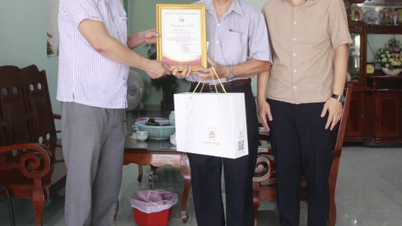










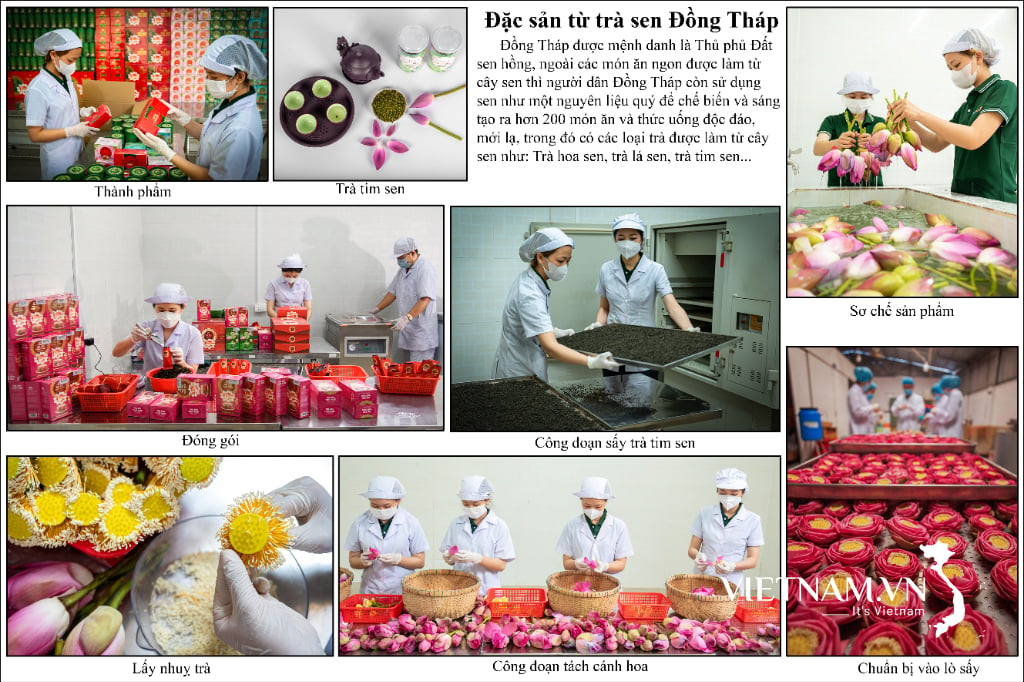

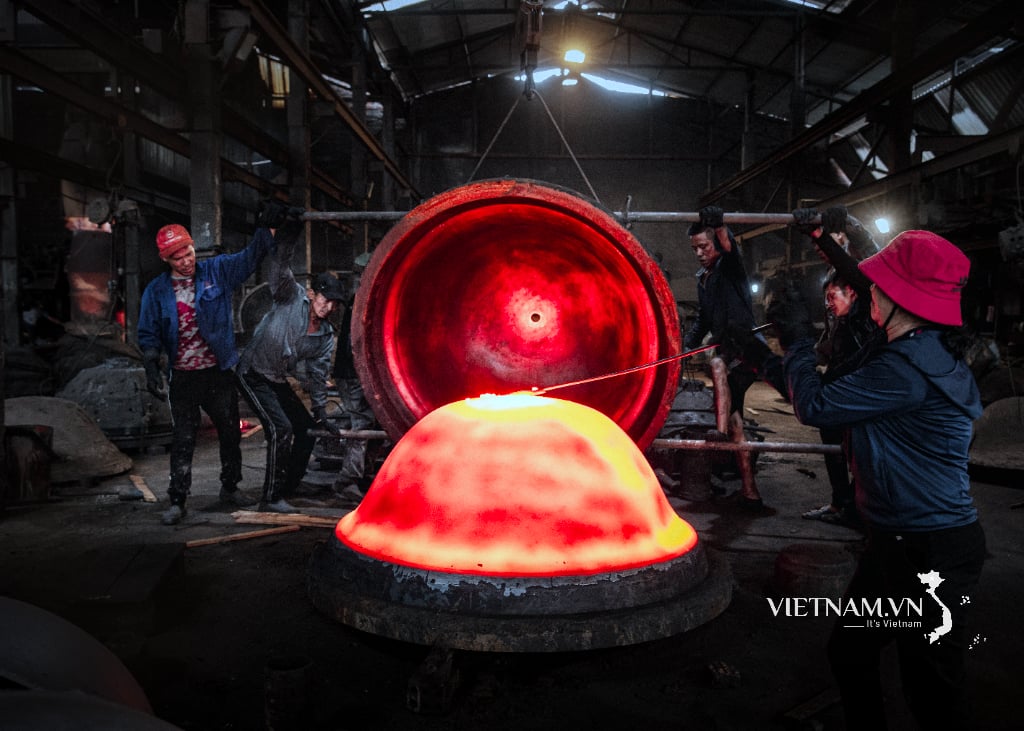

Comment (0)